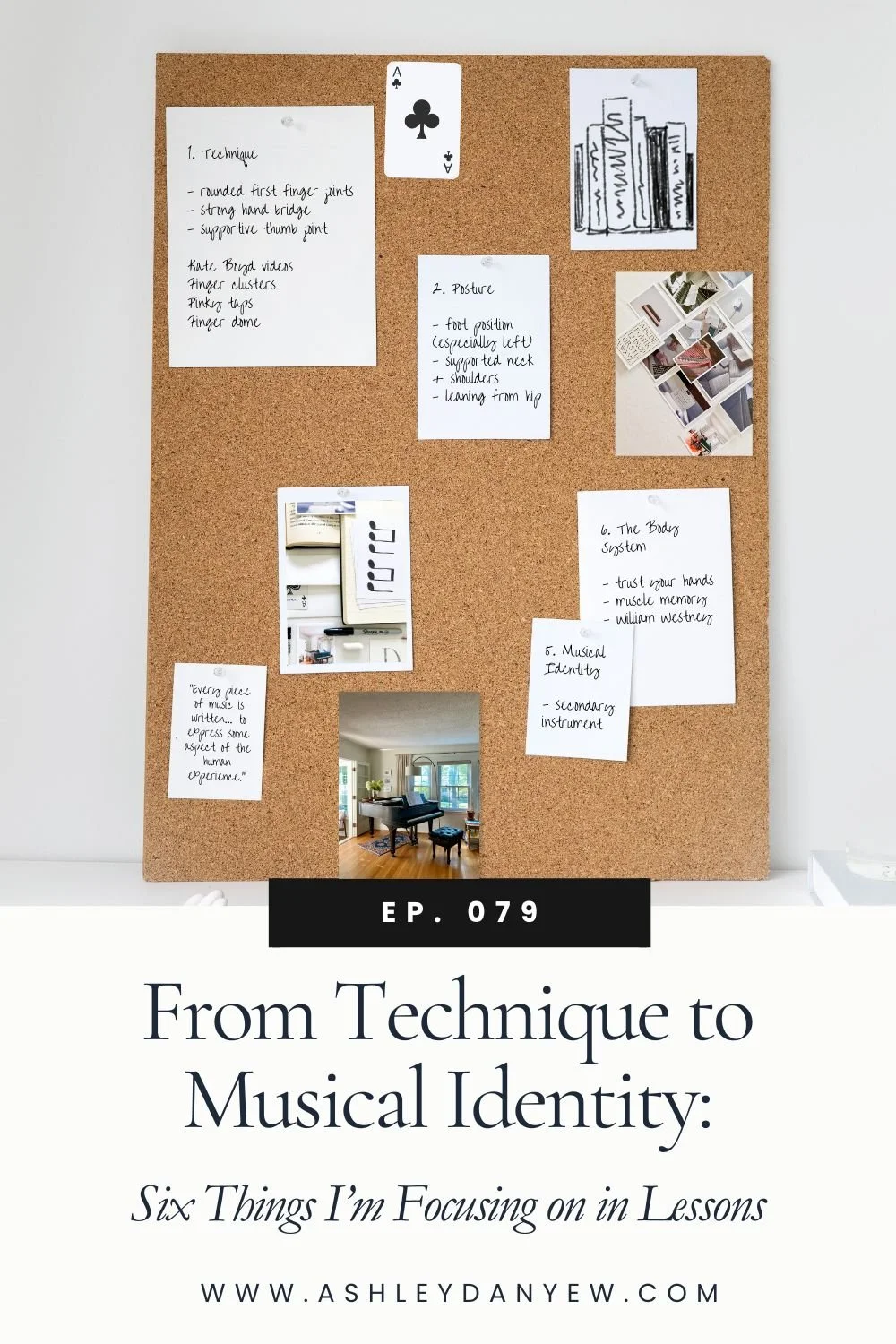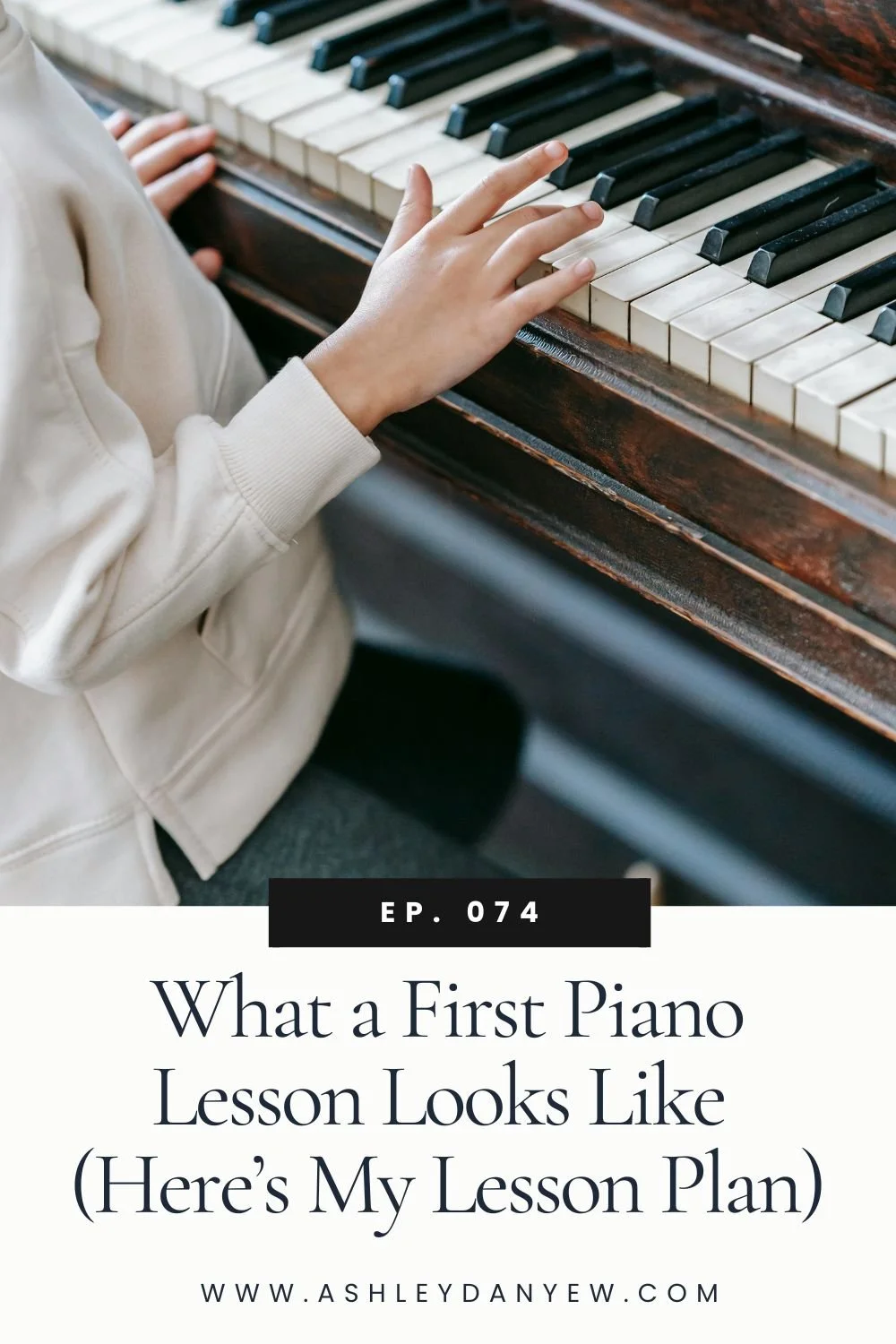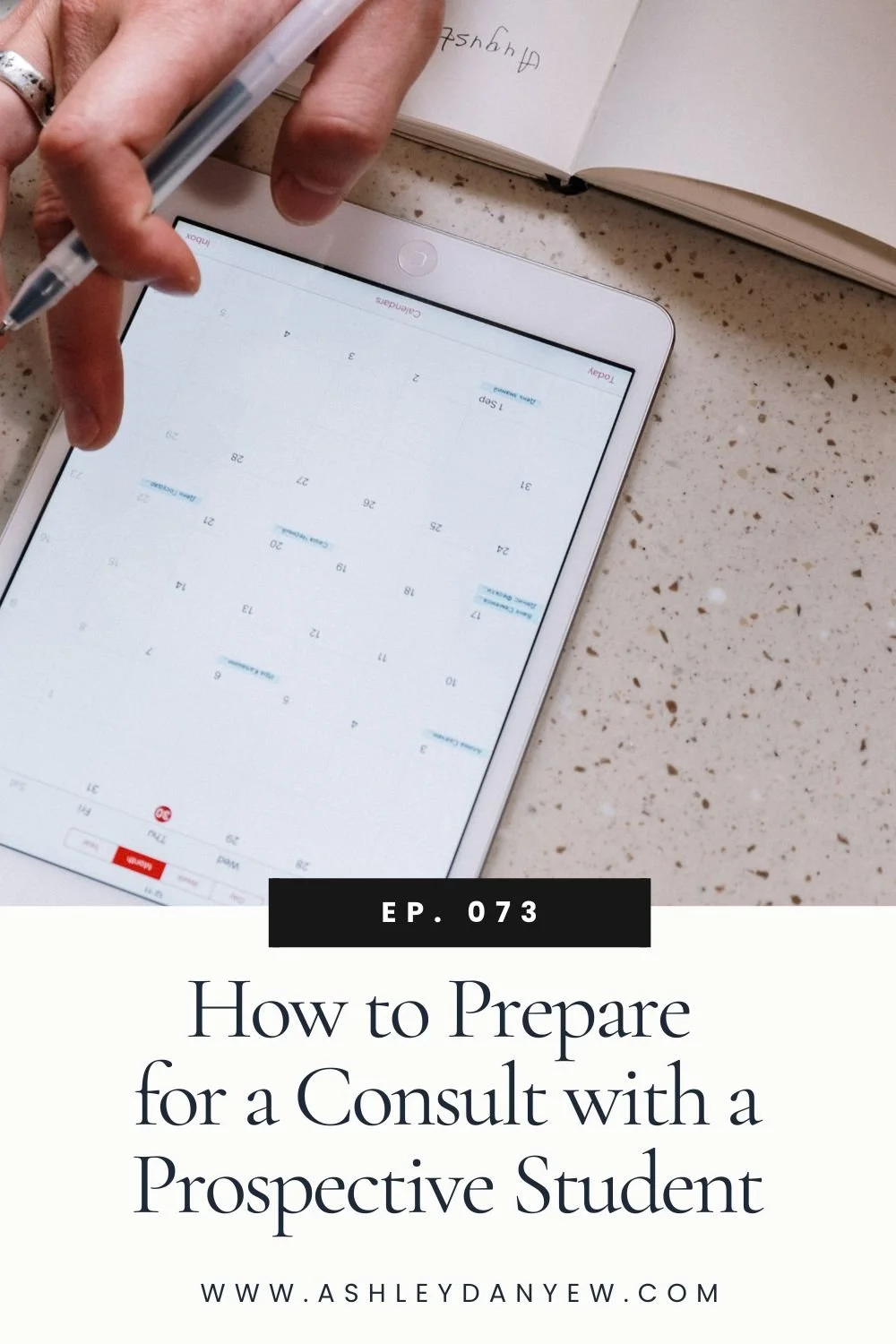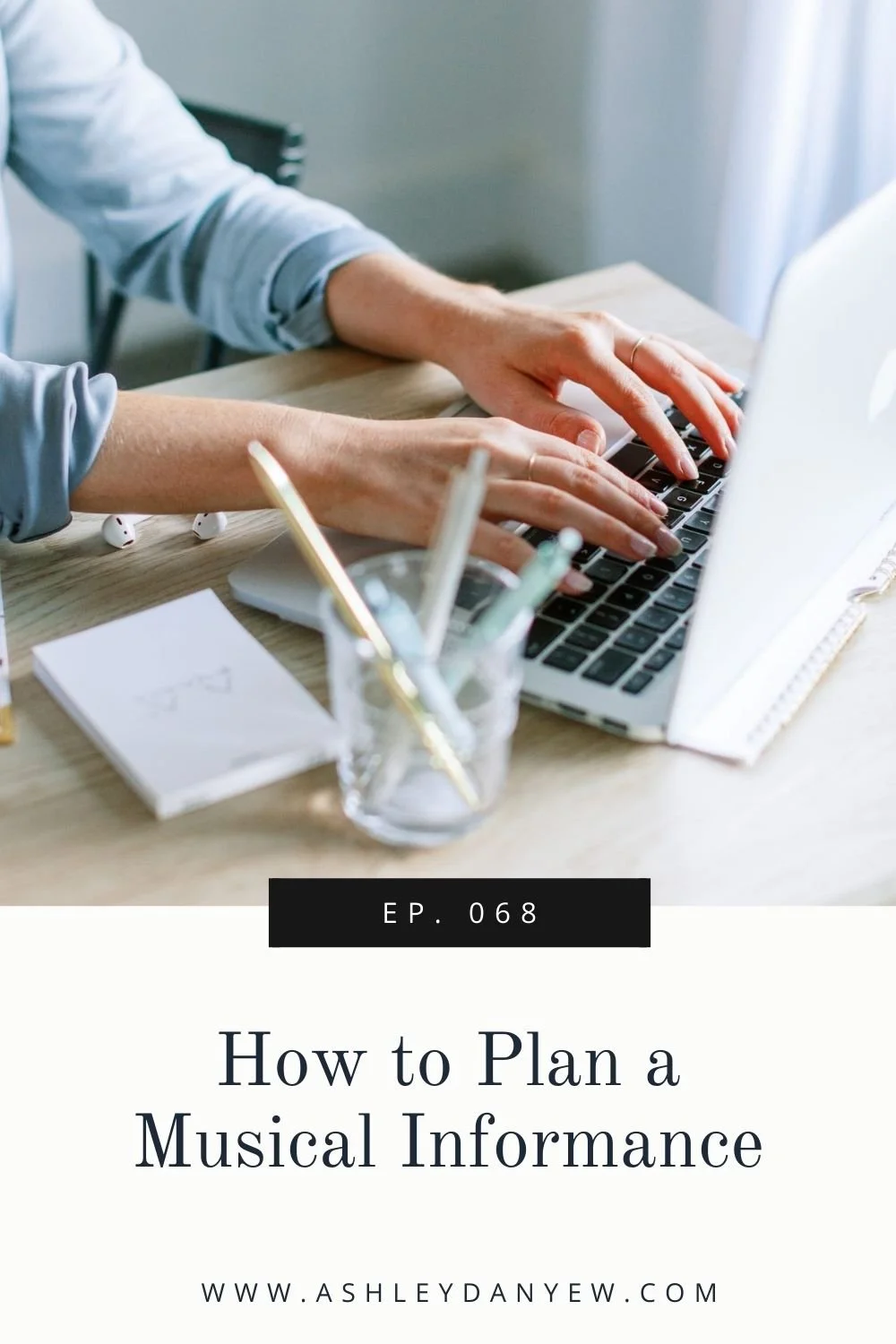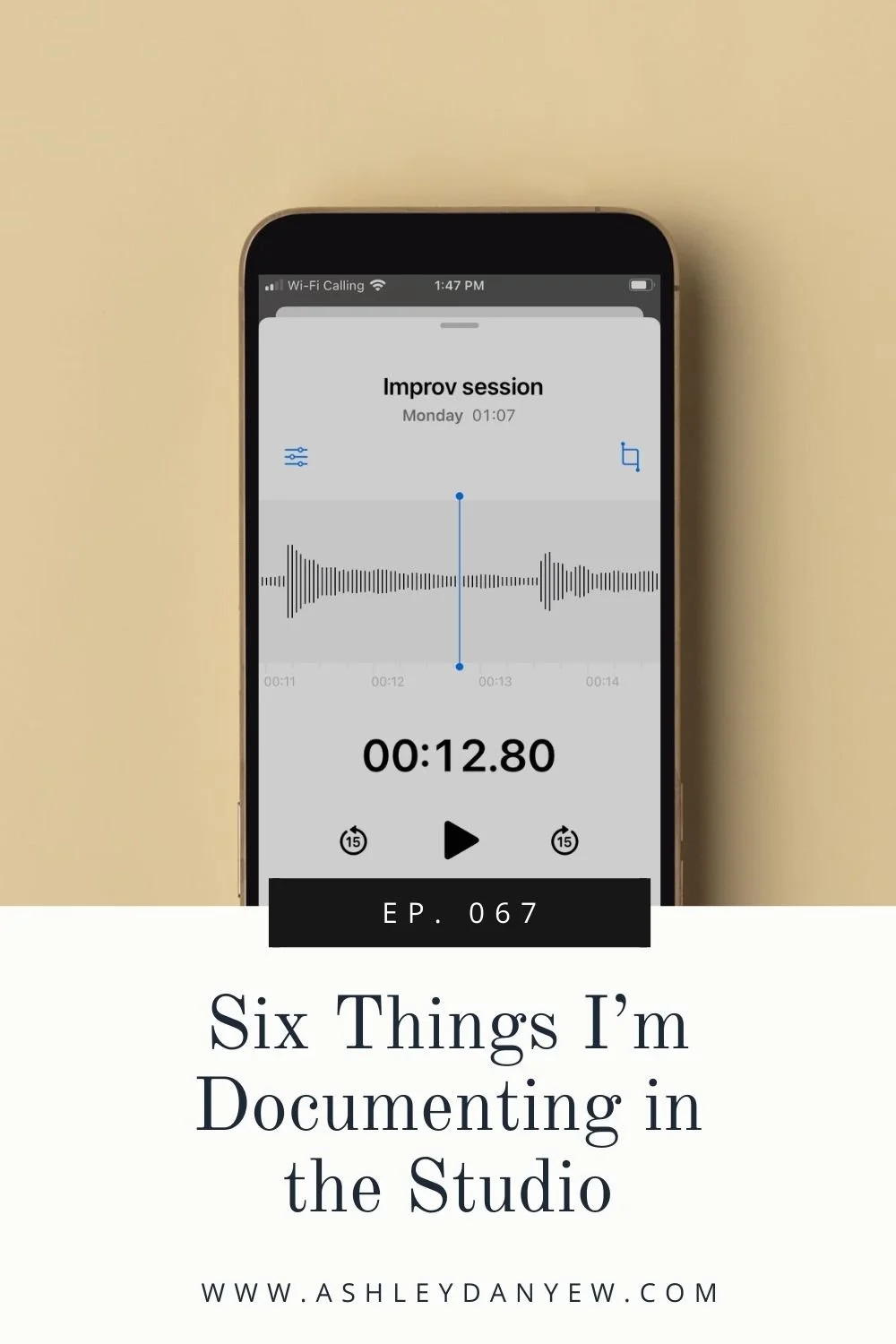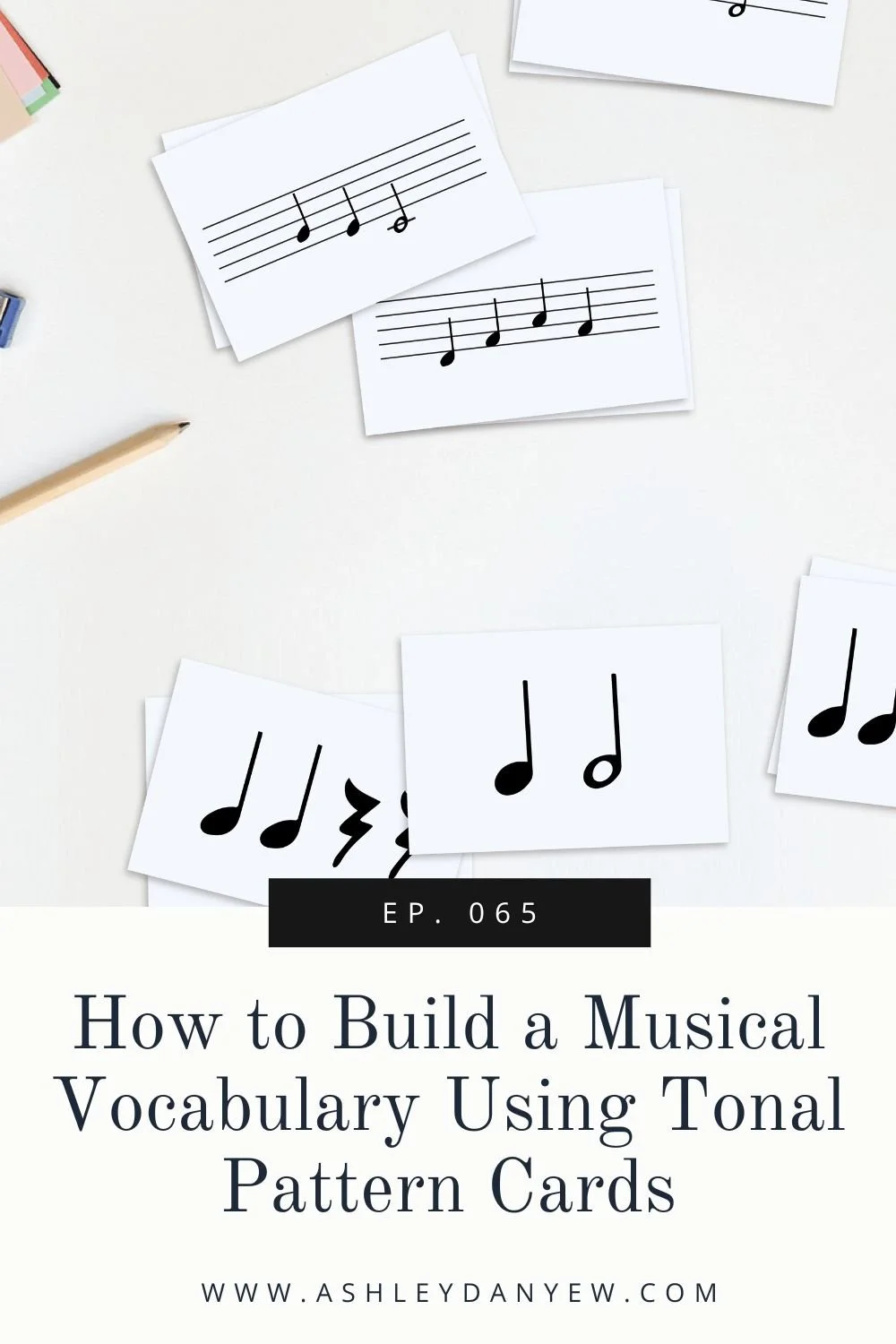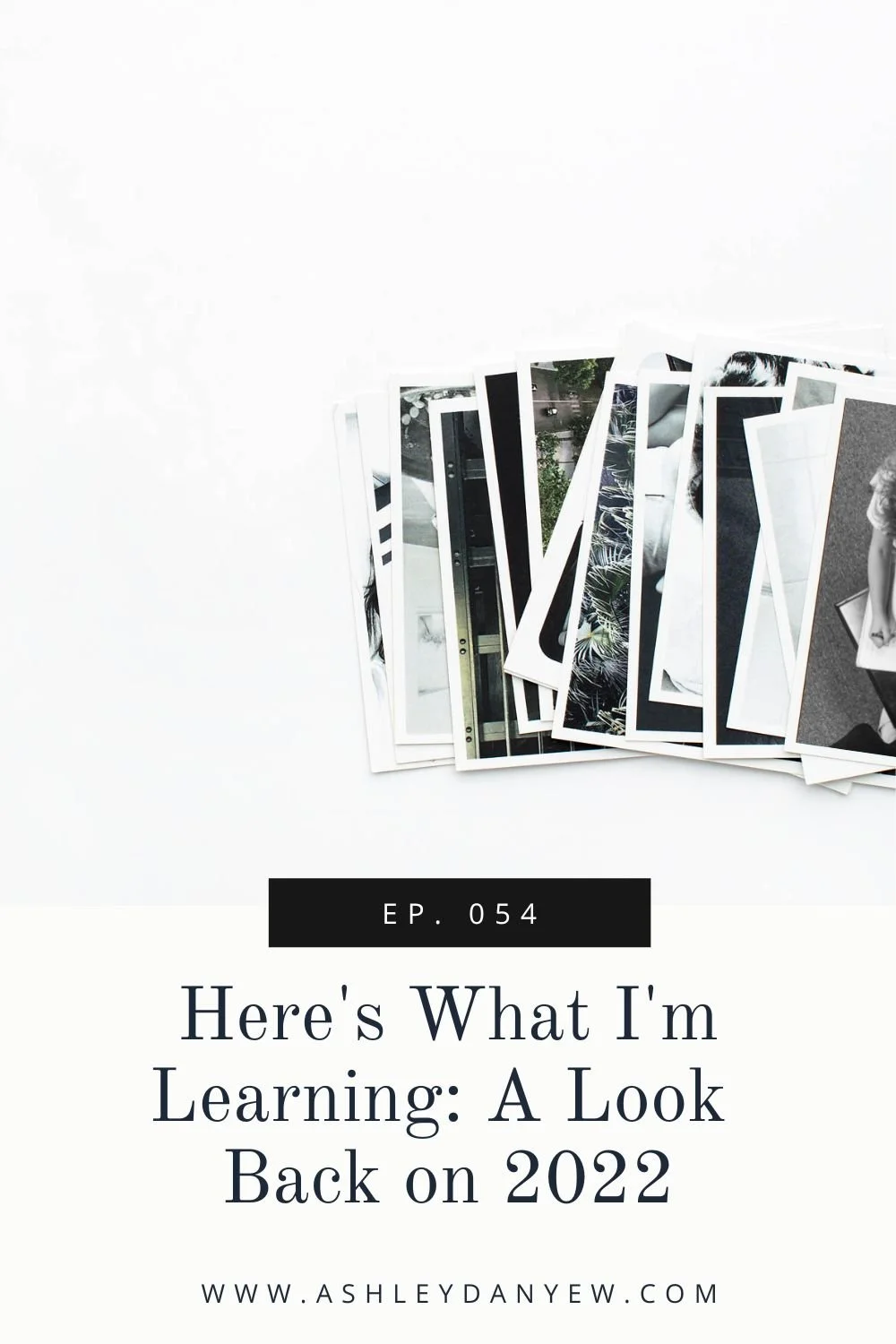Resources Mentioned
*Disclosure: I get commissions for purchases made through links in this post.
D. Headlam (2021). "Musical Informance: Performance for the Information Age." The Oxford Handbook of Public Music Theory. https://doi.org/10.1093/oxfordhb/9780197551554.013.2
Exploring Music with Bill McGlaughlin
The Rising Sun (Nancy Telfer)
A Morning Sunbeam (Florence Price)
Solar Eclipse (Piano Safari Repertoire Level 2)
Sunshower (Martha Hill Duncan)
I did a poll on Instagram recently to see if any of my music teacher friends had ever hosted a musical informance. A few said "yes," a few said "no," but a surprising number of respondents chose the third option: "What's an informance?"
An informance is basically an informal performance or as Eastman professor Dave Headlam describes, "A performance for the information age." (source: Oxford Handbook of Public Music Theory)
It's an opportunity to share musical works in progress or perform in a laid-back environment while inviting the audience into the process. There's a teaching component and a performing component, and depending on how you structure it, a conversational or interactive component.
In case you missed it, this is a three-part series on how to plan a musical informance with your students, whether you teach private lessons, direct a community ensemble, or teach in the classroom.
In Ep. 068, I showed you in real time how I was researching, planning, and organizing my first musical informance for my students. I shared a few historical examples of musicians who exemplified this model of education and engagement, talked about ideas for how you could structure this, outlined a few components that separate an informance from a performance, and shared how we're preparing for this event in my studio.
I actually thought of another exemplary figure who embodies the model of the informance after I recorded the last episode—Bill McGlaughlin. He's the Peabody Award-winning classical music radio host of the popular show, Exploring Music.
It's on at 7 p.m. on weekdays on our local classical station; we started listening to it as grad students. Each week, they have a different theme—everything from music and art to Beethoven's symphonies to art songs to nature themes like "From the Mountain to the Sea." They've recorded over 200 week-long adventures, exploring works from various times, people, and places.
What I love about the show is how Bill weaves together source material—letters and interviews that give us insight into the composer's process or how the piece was first received—and musical examples that he plays on his studio piano to illustrate key musical moments and lines. He combines music history, music theory, and music performance in a way that's accessible for listeners of all experience levels.
Today, I'm sharing more details about our upcoming musical informance—my repertoire list, the questions I'm posing to my students as they learn and prepare, opportunities for student creativity and input, and how I'm organizing it with parents and families.
As I mentioned in the last episode, our musical informance this Spring is in celebration of the Solar Eclipse, as Rochester, NY is in the path of totality, which means for a couple of minutes on Monday afternoon, April 8, the sun will be totally eclipsed by the moon and the sky will turn dark like night.
There's so much great music for elementary and intermediate piano students inspired by the sun, the moon, and outer space, so I thought it would be fun to choose a special piece for each student in my studio and plan a few informances for parents and families.
Outer Space-Themed Piano Repertoire
So let's talk about repertoire. I started by making a list of all the pieces I could think of that had a space theme and then I went through the Table of Contents for my method books and go-to supplemental books. Once I had a good list in hand, I thought about pieces that might work well for each of my students, including some that could be turned into duets.
Here's what I ended up with:
Preparatory
Moonfinder (Dennis Alexander)
The Rising Sun (Nancy Telfer, RCM Prep B) - can easily be turned into a duet by having students play in different octaves
Dancing with My Shadow (Lisa Donovan Lukas)
Sailing in the Sun (Nancy Faber, 1)
Storms on Saturn (Nancy Faber, 2A)
Elementary
Solar Eclipse (Piano Safari Repertoire Level 2) - can have two students play together or turn it into a trio with teacher accompaniment
Sunshine and Shadows (Martha Mier)
A Morning Sunbeam (Florence Price)
Speedy Comet (Alison Mathews, RCM 1) - has a Stars Wars feel to it
Stellar (Chrissy Ricker)
Lunar Eclipse (Nancy Faber, 3A)
Sunny Day (Robert Vandall)
Dark to Light (Jennifer Eklund)
Sailing by Moonlight (Joan Last, RCM 2)
Early Intermediate
The Sunshiny Morning (Cornelius Gurlitt)
The Moons of Jupiter (Nancy Faber)
When the Sun Rises (Nancy Faber, 5)
When the Planets Are Aligned (Nancy Telfer, RCM 4) - a fun etude in mixed meter
Sailing on the Solar Wind (Martha Hill Duncan)
Bright Orange (Robert Starer, RCM 6)
Late Intermediate
Halley’s Comet (Nancy Telfer, RCM 7) - lots of seventh chords
Sunshower (Martha Hill Duncan, RCM 8)
O Moon (Alexina Louie, RCM 8)
Pop music
You Are My Sunshine
Interstellar Theme
Here Comes the Sun
Good Day, Sunshine
Total Eclipse of the Heart
I made repertoire assignments about eight weeks before the proposed informance dates knowing that we have February Recess in there and a few other days off of school.
Reflective Questions
As we work on these pieces in lessons, I'm encouraging my students to think about what makes their piece unique or interesting. What can we share with parents and family members?
Here are a few questions I'm asking:
What would someone who doesn’t play the piano need to know about this?
What might the composer have been thinking here?
What do you love about this piece?
Where is there a musical surprise?
What's your favorite musical moment?
What did you learn while working on this piece?
What's something that was challenging for you in this piece? How did you work on that?
As we come up with ideas, I'm jotting them down in the Notes app on my phone.
For instance, Nancy Telfer's piece, “The Rising Sun” in the Celebration Series Preparatory B Repertoire book is written in black-key pentatonic—an interesting feature. I have two 2nd graders who are playing this as a duet so they could talk about the process of turning a solo piece into a duet: do they want to have one person play the first phrase, the musical question, and the other play the second, the musical answer? Do they both want to play the whole piece but in different octaves? Who will do the pedaling? Who will be responsible for setting the tempo?
This piece also provides an opportunity to invite an audience member (or two) to try out a black-key improvisation at the piano to get a feel for how this piece will sound.
Another student is playing Florence Price's "A Morning Sunbeam," which is available on IMSLP. We can provide some historical background as to who Florence Price was and her contributions to the field, talk about melody vs. accompaniment, and explain the form.
I have two 4th graders who are playing the piece "Solar Eclipse" from Piano Safari Level 2 (the perfect piece for this event!). They're planning to share about the technique involved with each part, the form (theme and variations), and the reuse of rhythm patterns. When learning the piece, we used planet names to identify and differentiate these rhythms: Jupiter, Saturn, and Mars. I think this would be a fun demonstration to do with parents using rhythm cards that the students set up and teach.
One of my high school students asked if she could learn "Total Eclipse of the Heart" by ear. To help her make sense of the song, she created a musical map with shorthand notation, chord progressions, and lyrics to follow as she plays. This is something we'll share and discuss with the audience.
Another student is preparing “Sunshower” by Martha Hill Duncan, found in the Celebration Series Level 8 Repertoire book. She's planning to discuss interpretation ideas, creative endings, and musical patterns.
Conversational Element
Depending on the age of the student, I'm planning to step in to co-lead the conversation part of the presentation. (And that's another way I'm differentiating this from a recital or other performance. I'm calling each student's contribution a "presentation.") I'm thinking for my youngest students that I'll ask 3-4 questions and have them answer, almost as if we're in a lesson and the audience is invited to sit in and observe.
For older students, I'm asking them to think about a few things they want to highlight or share and prepare a brief 3-4 minute spoken introduction before their performance.
Scheduling and Organizing a Musical Informance
I sent around a Doodle poll to parents at the end of January to get a sense of their availability. This was surprisingly difficult, but maybe because I gave too many options? Next time, I may only offer 4-5 options instead of 8.
Given the number of students in my studio right now, I wanted to divide them into two groups so each informance will be small and under an hour. It was also challenging to find a mutual time that worked for students playing duets, but in the end, I was able to assign everyone to a group and keep ensemble members together. Our informances will be on Tuesday and Thursday evenings from 6-7 p.m.
Since I teach at a school, I'm planning to use one of the music classrooms for these events instead of the theater where we have our end-of-year recital. I'll set up chairs around the piano and encourage everyone to dress casually.
I will probably type up a half-sheet program so everyone can follow along and have a physical keepsake from the event.
I'm really looking forward to sharing this unique teaching and learning event in my studio this year and hope this inspires you to consider how you might plan something similar with your students.
Coming Up Next
In the next episode, I'll share a review and recap of how everything went, what I learned, and ideas for how you might do something similar with your students.
Questions? Comments? Reach out to me on Instagram @ashleydanyew or email me directly at ashley@ashleydanyew.com. I'd love to hear if you've done something like this in your teaching and how it went.






